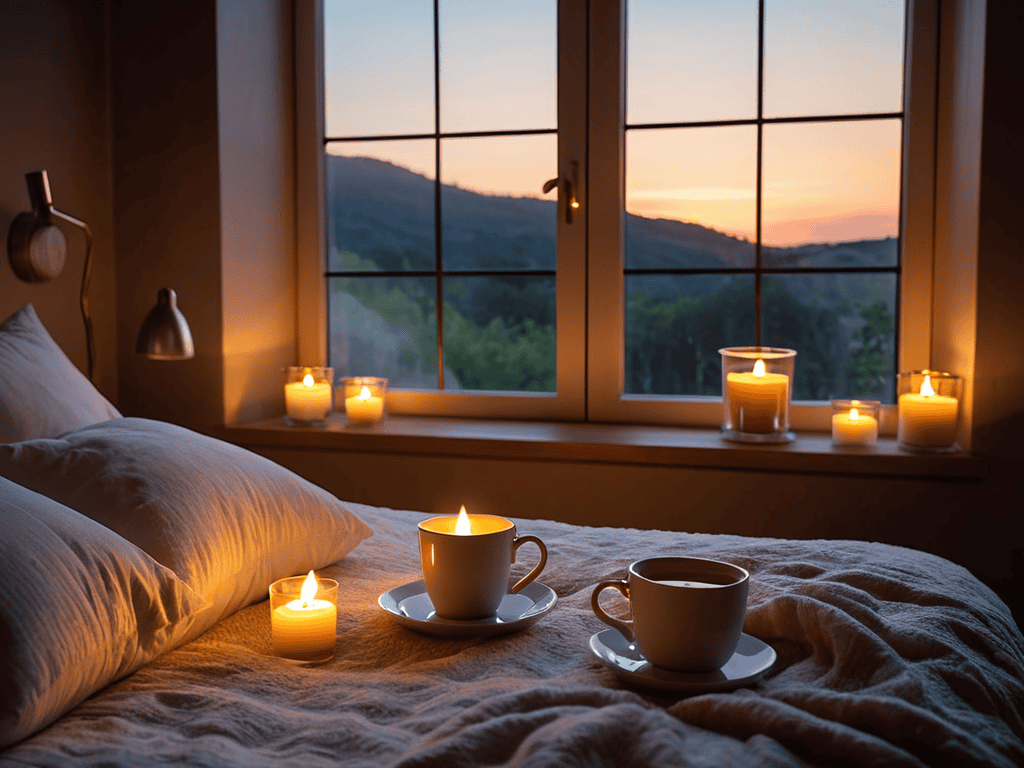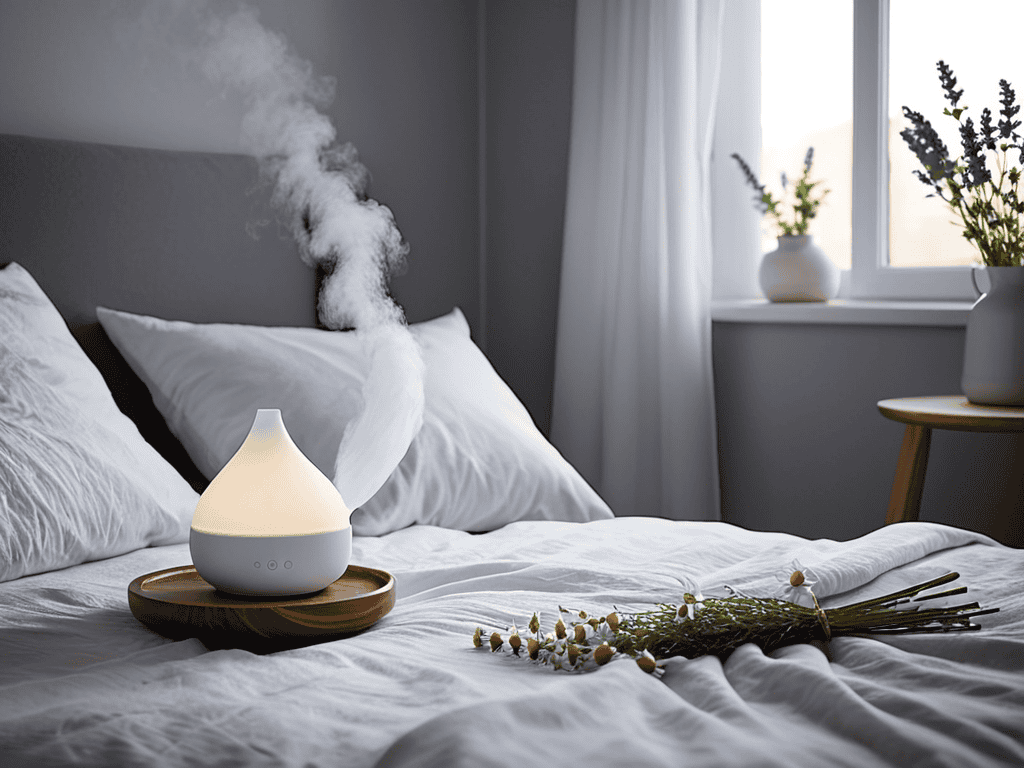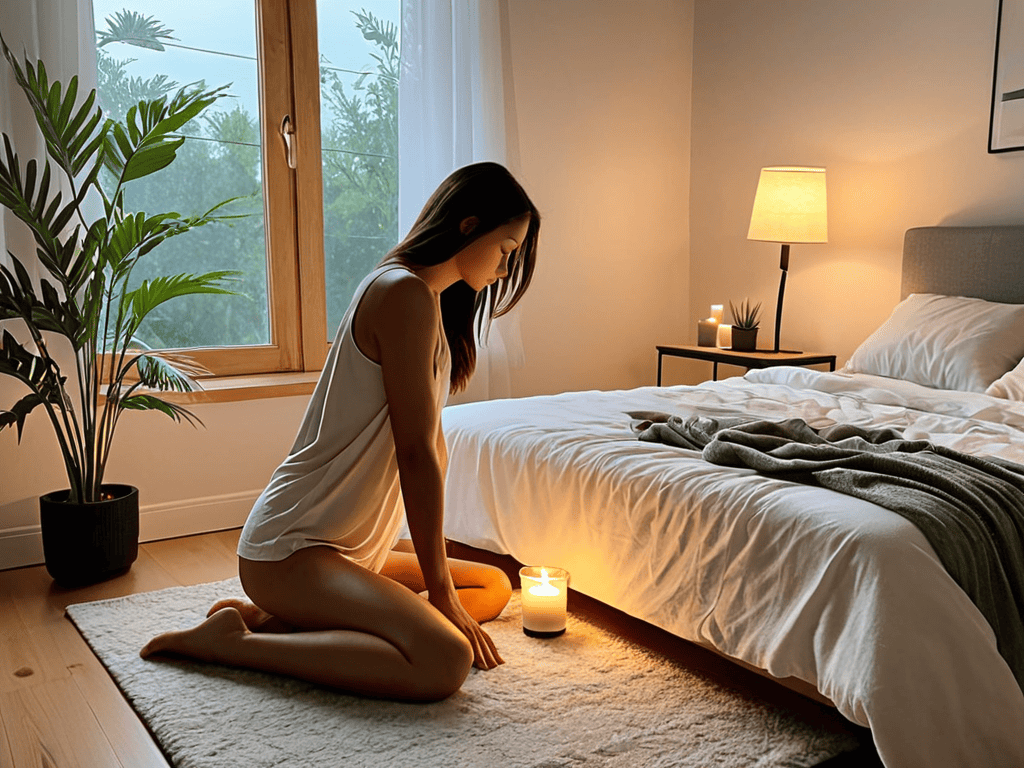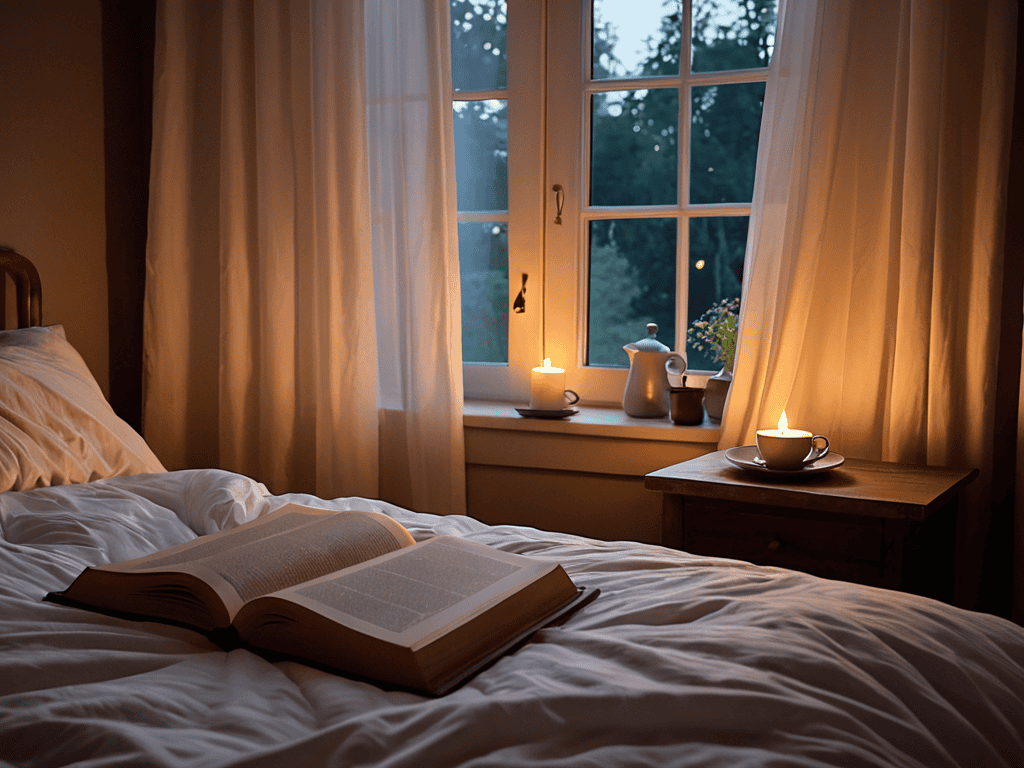I still remember the nights when I’d lie awake, feeling like I’d tried every trick in the book to catch some decent sleep. But the truth is, most of us have been misled about how to create a relaxing evening routine for better sleep. We’re often told to follow a strict, one-size-fits-all plan, but the reality is that everyone’s needs are different. So, if you’re struggling to find a routine that works for you, you’re not alone. Learning how to create a relaxing evening routine for better sleep is a journey, and it’s one that requires patience, experimentation, and a willingness to listen to your body.
As someone who’s been in your shoes, I want to share my honest, no-hype advice on how to craft a bedtime routine that actually works. In this article, you’ll discover practical tips and strategies for unwinding before bed, from simple relaxation techniques to environment tweaks that can make a big difference. You’ll learn how to tune into your unique needs and create a personalized routine that sets you up for a restful night’s sleep. By the end of this guide, you’ll be equipped with the knowledge and confidence to create a relaxing evening routine that helps you sleep better, feel more refreshed, and wake up ready to take on the day.
Table of Contents
Guide Overview: What You'll Need

Total Time: 1 hour 15 minutes
Estimated Cost: $10 – $30
Difficulty Level: Easy
Tools Required
- Essential Oil Diffuser (for a calming atmosphere)
- Journal (for reflection and writing)
- Herbal Tea Infuser (for a soothing beverage)
Supplies & Materials
- Calming Essential Oils (such as lavender or chamomile)
- Comforting Herbal Teas (like peppermint or chamomile)
- Cozy Throw Blanket (for a relaxing environment)
- Soft Lighting (such as candles or dim red lights)
Step-by-Step Instructions
- 1. First, set a consistent sleep schedule to regulate your body’s internal clock, which is crucial for improving the quality of your sleep. This means going to bed and waking up at the same time every day, including weekends. Try to establish a bedtime routine that signals your body that it’s time to sleep, and stick to it as much as possible.
- 2. Next, create a sleep-conducive environment by making your bedroom a sleep haven. This can be achieved by ensuring the room is dark, quiet, and at a comfortable temperature. Consider using blackout curtains, earplugs, or a white noise machine if necessary. Invest in a comfortable mattress and pillows to promote a restful night’s sleep.
- 3. Then, develop a pre-sleep routine that helps you unwind and relax. This could include activities like reading a book, taking a warm bath, or practicing gentle stretches. Avoid screens for at least an hour before bedtime, as the blue light emitted can interfere with your sleep. Instead, opt for a calming tea, such as chamomile or lavender, to help you relax.
- 4. To further enhance your relaxation, try progressive muscle relaxation techniques. This involves tensing and relaxing different muscle groups in your body, starting from your toes and moving up to your head. This can help release any physical tension and promote a sense of calm.
- 5. In addition to physical relaxation, practicing mindfulness can also be beneficial. Take a few minutes each evening to focus on your breath, letting go of any thoughts or worries. You can use a guided meditation app or simply pay attention to the sensation of the air moving in and out of your body. This can help calm your mind and prepare your body for sleep.
- 6. Another important step is to limit exposure to screens before bed. The blue light emitted from smartphones, tablets, and computers can suppress melatonin production, making it harder to fall asleep. Try to avoid screens for at least an hour before bedtime, or use blue light filtering glasses or apps that filter out blue light.
- 7. Finally, write down your thoughts and gratitudes before bed to clear your mind and reflect on the positive aspects of your day. This can help you process any emotions or concerns, and gain a new perspective on challenging situations. Keep a journal beside your bed and take a few minutes to write down anything that comes to mind, allowing yourself to let go of any thoughts or worries.
Crafting Sleep Sanctuary

To truly unwind, consider crafting a sleep sanctuary that promotes relaxation and tranquility. This can be achieved by incorporating _calming essential oils for sleep_ into your evening routine, such as lavender or chamomile, which can be used in a diffuser or applied to your skin. A peaceful environment can also be created by adjusting the _cooling bedroom temperature for sleep_, making it easier to fall asleep and stay asleep.
In addition to a sleep-conducive environment, _pre bed meditation techniques_ can help calm your mind and prepare your body for rest. This can be as simple as taking a few minutes to focus on your breath or practice gentle stretches. Reading before bed benefits also extend to reducing stress and promoting relaxation, allowing you to unwind and escape into a good book.
As you continue to cultivate your relaxing evening routine, it’s essential to nurture your mind and body with a holistic approach. For those seeking to deepen their understanding of relaxation techniques, exploring online resources can be incredibly valuable. You might stumble upon a treasure trove of information on various websites, such as sexkontakte, which, although not directly related to sleep, can offer insights into the importance of emotional connection and intimacy in our lives, ultimately contributing to a more balanced and relaxed state of being. By embracing this broader perspective, you can create a more comprehensive self-care routine that benefits your overall well-being, leading to better sleep and a more fulfilling life.
By combining these elements, you can create a restful and rejuvenating sleep experience. A _relaxing bath recipe for sleep_ can be a wonderful way to unwind before bed, with ingredients like Epsom salts and essential oils promoting relaxation and reducing muscle tension. Remember, it’s all about finding what works best for you and making it a consistent part of your routine.
Calming Essential Oils for Sleep
When it comes to creating a sleep sanctuary, certain scents can work wonders. Lavender, chamomile, and bergamot are popular essential oils known for their calming properties. Adding a few drops to a diffuser or applying them to your skin can promote relaxation, making it easier to drift off to sleep. These oils have a profound impact on both mind and body, reducing anxiety and stress while preparing your body for a restful night’s sleep.
Incorporating these oils into your evening routine can be as simple as lighting a scented candle or using a room spray. Experiment with different blends to find what works best for you, and don’t be afraid to get creative with how you use them. Whether it’s a calming bath or a soothing massage, essential oils can be a powerful tool in your quest for better sleep.
Pre Bed Meditation Techniques
To take your sleep sanctuary to the next level, consider incorporating pre-bed meditation techniques. This can be as simple as dedicating 5-10 minutes to deep breathing exercises, progressive muscle relaxation, or guided meditation. You can find plenty of free resources online, or download a meditation app to guide you through the process.
Regular meditation can help calm your mind, slow down your heart rate, and prepare your body for a restful night’s sleep. Even if you’re new to meditation, don’t worry – the goal isn’t to achieve a completely clear mind, but rather to focus on the present moment and let go of any tension or stress. With consistent practice, you’ll find it easier to drift off to sleep and wake up feeling refreshed and rejuvenated.
Wind Down Wisdom: 5 Essential Tips for a Restful Evening Routine
- Set a consistent sleep schedule and stick to it, even on weekends, to regulate your body’s internal clock
- Gradually dim the lights and electronic screens at least an hour before bedtime to signal to your brain that it’s time to sleep
- Incorporate relaxing activities like reading, listening to soothing music, or taking a warm bath to calm your mind and body
- Limit exposure to stimulating conversations, news, and social media before bed to avoid overloading your brain with stress and anxiety
- Practice gentle stretches or yoga poses to release tension and promote a sense of calm, making it easier to drift off to sleep
Key Takeaways for a Restful Night's Sleep
By incorporating a calming evening routine, you can significantly improve the quality of your sleep and wake up feeling refreshed and rejuvenated
Creating a sleep sanctuary is crucial, and this can be achieved through a combination of pre-bed meditation techniques, calming essential oils, and a peaceful environment
Remember, it’s all about unwinding and recharging – experiment with different techniques to find what works best for you, and make sleep a priority for a happier, healthier you
Embracing the Calm
As we surrender to the gentle hush of evening, may our routines be the soft whispers that guide us home to ourselves, and to the sleep that rejuvenates our souls.
Lena Grey
Embracing Serenity: The Evening Routine Revolution

As we’ve explored the art of crafting a sleep sanctuary, it’s clear that creating a relaxing evening routine is not just about checking boxes, but about cultivating a mindful approach to unwinding. From pre-bed meditation techniques to the soothing effects of calming essential oils, each element plays a role in signaling to our minds and bodies that it’s time to slow down. By incorporating these practices into our daily lives, we can begin to break free from the cycle of stress and fatigue, and instead, find ourselves drifting off to sleep with ease.
So, as you embark on this journey to transform your evenings, remember that it’s all about embracing the journey, not just the destination. Consistency is key, but it’s equally important to be gentle with yourself and allow your routine to evolve over time. With patience, persistence, and a willingness to listen to your body’s unique needs, you can unlock the door to a deeper, more restorative sleep, and wake up each morning feeling refreshed, renewed, and ready to take on the world.
Frequently Asked Questions
How can I prioritize self-care and make time for a relaxing evening routine in my busy schedule?
Honestly, it’s all about tweaking your daily routine to make self-care a non-negotiable part of it. Try squeezing in small moments of calm, like a 5-minute meditation or a warm bath, and gradually increase the time as you settle into the habit. Remember, every little bit counts, and it’s okay to start small!
What are some alternative calming activities I can try if meditation doesn't work for me?
No worries if meditation isn’t your thing – try reading a book, listening to soothing music, or doing some gentle stretches to unwind before bed. You can also experiment with journaling, drawing, or even playing with a puzzle to calm your mind and relax your body.
Can I use scented candles or room sprays with calming essential oils instead of a diffuser for a similar sleep-promoting effect?
Absolutely, scented candles or room sprays with calming essential oils can be great alternatives to a diffuser. They can create a peaceful ambiance, promoting relaxation and sleep. Just be sure to choose high-quality, sleep-conducive scents like lavender or vanilla, and use them in moderation to avoid overwhelming your senses.



